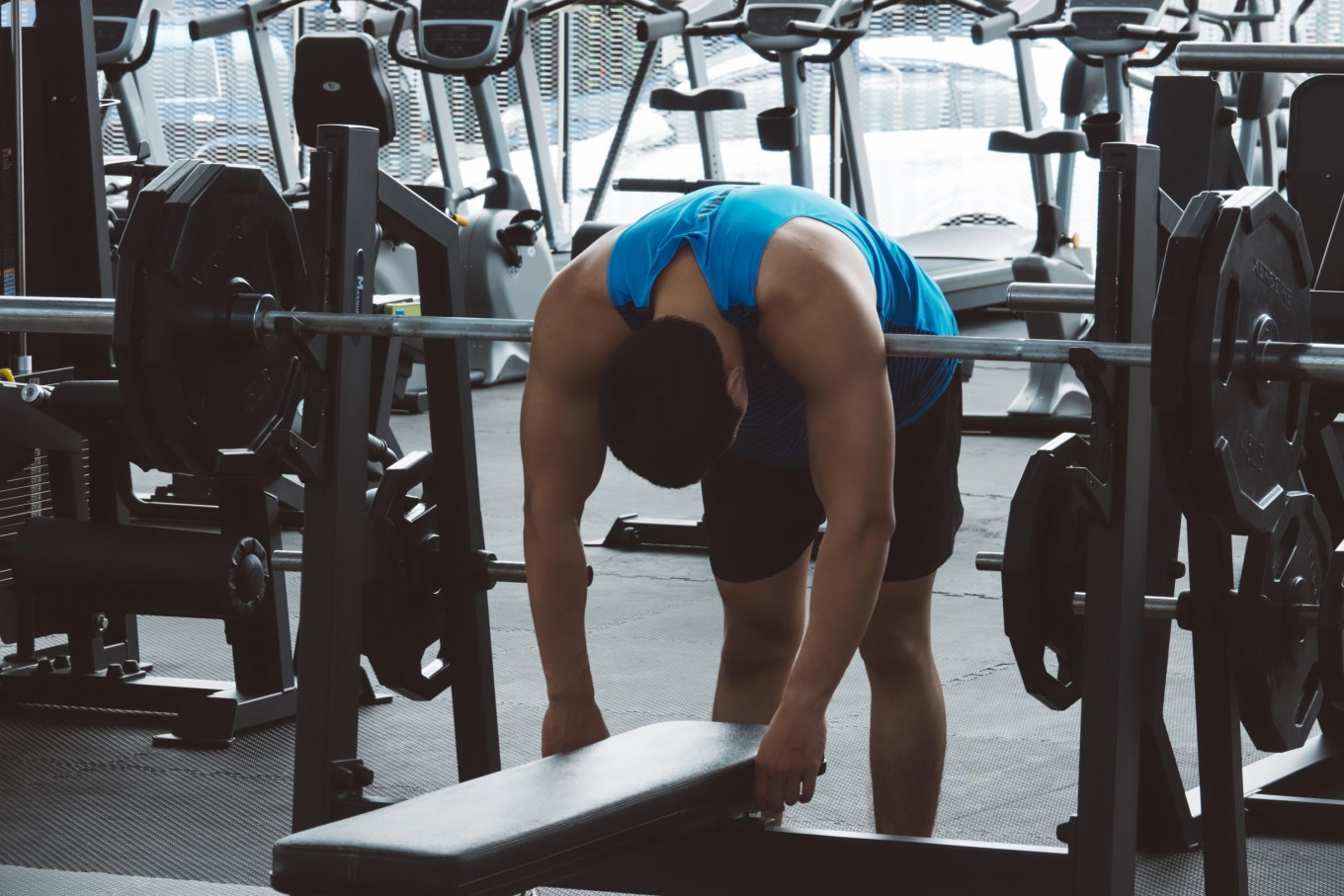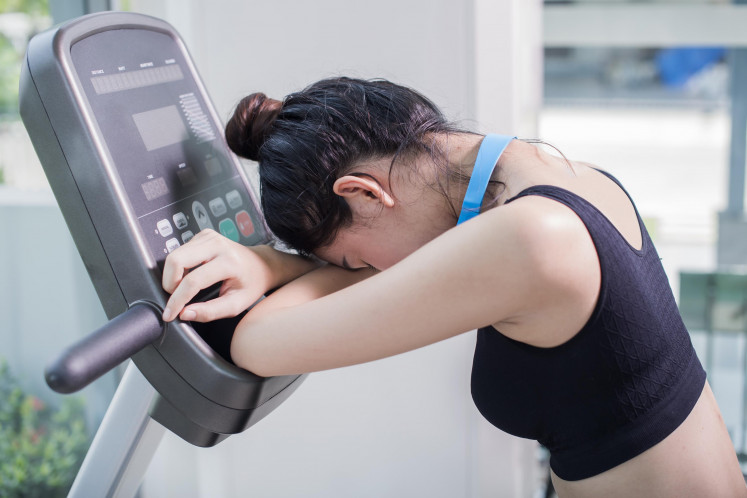Popular Reads
Top Results
Can't find what you're looking for?
View all search resultsPopular Reads
Top Results
Can't find what you're looking for?
View all search resultsProper nutrition, rest essential to prevent training under-recovery
When athletes push themselves too hard during an exercise, they can suffer from symptoms that can oftentimes be called overtraining. For non-athletes, such symptoms are usually referred to as under-recovery.
Change text size
Gift Premium Articles
to Anyone
L
et’s just say you are an exercise freak. During your recent training regimen, you feel stronger than ever, completing more sets with more reps than you usually do. Yet, soon after that you start to feel your entire body aching more painfully than usual.
The day after you try to lift weights again, but it seems like your arms have turned feeble. Having failed to do a single movement rep, let alone one complete set, for the day, you end up feeling lousy and question how you seem to have lost your usual physical stamina.
Sound familiar?
When athletes push themselves too hard during an exercise, they can suffer from symptoms that can oftentimes be called overtraining. For non-athletes, such symptoms are usually referred to as under-recovery, according to trainer Teuku Aufra Maretto, who holds a certification from the Indonesian Fitness Trainers Association.
Sports medicine doctor Sophia Hage explained that the symptoms included subjective perceptions of declining muscle strength and endurance.
“You might also sense your body aching more than usual, as well as a general feeling of powerlessness. Due to muscle overuse, you may experience sharp pain, like being pierced by a needle, or sometimes it can be dull pain also, as if someone has just punched you. Other times, the pain will only become palpable when you press on the overused spot,” she explained.
“On a more objective scale, you might also discover an increase in your heart rate when you measure it after you wake up in the morning,” she continued.
According to Sophia, when people push through their physical capacity – be it in terms of frequency and/or intensity – beyond their limits without following their natural strength, composition and endurance, they will experience these symptoms.
“For instance, you used to lift 10 kilograms of weight and one day, because you’re euphoric about your exercise results and thus feeling stronger than usual, all of a sudden you lift 30 kg. This is not good, because you haven’t programmed your body to take on such a drastic addition of weight,” Teuku said.
The body is not accustomed to taking on drastic increases of weight, especially since this requires adequate post-exercise rest and recovery. Without the much-needed rest and recovery, your exercise will not do much in giving you the results you need, be it in terms of muscle tone and mass or physical flexibility and strength.
“When you practice resistance and strength training, for instance, you add stress to your muscles, creating what we call microtears. Your body needs to fortify the microtears and mend them again during the rest and recovery in order for your muscles to expand as a result of your training,” Sophia explained.
Therefore, overdoing your exercises – such as doing 200 push-ups every day – will not do much to give you the kind of body appearance and strength you want if you do not allow your body to restore your muscles again post-exercise – unless you are an elite athlete, that is.
“Typically, elite athletes require only 24 hours to recover from such training. Those who belong to the non-elite club will require approximately one to two days to fully recover depending on your fitness level on a given day,” Sophia advised.
“Plus, it is not advisable to train the same muscles for days in a row if you’re not an athlete. For instance, you can alternate between training your upper body muscles and the lower body one day after another.
Also, Sophia said, if you do not have high-quality sleep for at least eight hours every day, you will be prone to having these overtraining/under-recovery symptoms. Our body organs, including our muscles, recover very rapidly as we are sleeping. So, to get the results you want, do not forget to get a good night’s sleep on top of your exercise regimens.
Teuku said that people who suffered from under-recovery symptoms also usually forgot to supplement their physical exercise regimens with proper nutrition.
“Exercising alone is not enough. If you don’t have enough protein intake, your muscle recovery process will be sluggish, especially when we talk about resistance training. The protein we get from our food works like house construction material, helping us build our muscles,” he added, while also reminding the obvious message: Do not forget to have enough carbs and fat in your diet as well.
Talking about proper nutrition and sleep is easy but as a lot of people can attest, when they are so stressed out, it is hard to eat and sleep properly. So, let’s now talk about the elephant in the room: stress.
“Actually, doing physical exercises adds stress to our bodies. If we want to conduct our training after a highly stressful work day, you will have no strength left for your exercise; if you force your body, you’re bound to feel more terrible,” Teuku said.
Therefore, Teuku advised, on rough days, you could still exercise all right, but limit the intensity and frequency to a bare minimum, just enough to break a sweat and get your blood flowing.











